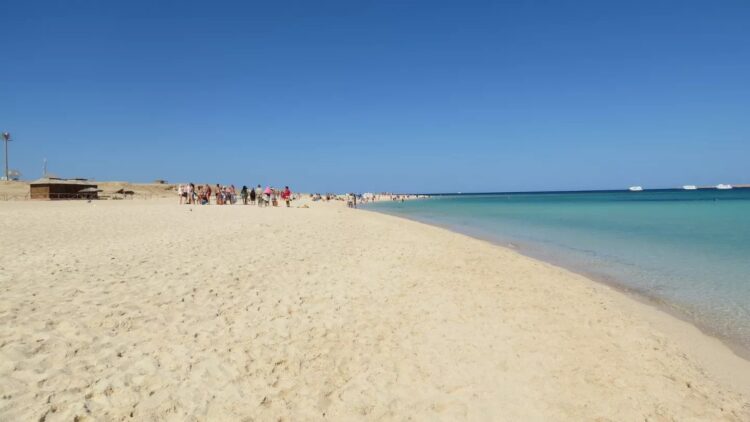Egypt’s Red Sea resorts have long been a captivating destination for tourists seeking vibrant coral reefs, crystal-clear waters, and unparalleled diving experiences. However, recent news of a shark attack has left visitors and locals alike contemplating the safety of these idyllic coastal havens. In this article, we delve into the rarity of fatal shark maulings in the Red Sea and shed light on the measures in place to ensure the well-being of both humans and marine life.
The Uncommon Occurrence:
Shark attacks, while undeniably tragic, are extremely rare incidents in the Red Sea. The region boasts an extraordinary array of marine life, including various species of sharks. However, the chances of encountering a dangerous shark, let alone experiencing a fatal attack, are statistically minuscule. Over the years, millions of tourists have enjoyed the Red Sea’s waters without incident, highlighting the exceptional safety record of the region.
Understanding the Sharks:
The Red Sea is home to a diverse range of shark species, with the most commonly encountered being reef sharks, such as the whitetip and blacktip reef sharks. These species are typically smaller in size and tend to avoid human interaction. They are essential to the ecosystem, playing a vital role in maintaining balance and biodiversity. While it is natural for sharks to be present in these waters, they rarely exhibit aggressive behavior toward humans.
Protective Measures:
The Egyptian authorities and resort operators take significant precautions to ensure the safety of visitors while preserving the marine ecosystem. Shark-spotting teams constantly patrol the Red Sea, monitoring shark behavior and promptly alerting divers and beachgoers of any potential risks. Many resorts enforce strict guidelines for diving and snorkeling, including staying in designated areas, avoiding provocative behaviors, and adhering to responsible environmental practices.
Educating Divers and Swimmers:
Education plays a pivotal role in minimizing risks associated with sharks and other marine creatures. Resorts and dive centers provide comprehensive briefings to visitors, emphasizing the importance of respecting marine life and employing responsible diving techniques. This knowledge empowers tourists to make informed decisions, fostering a harmonious coexistence between humans and the natural environment.
Conservation Efforts:
Recognizing the significance of the Red Sea’s ecosystem, numerous organizations and research institutions collaborate to study marine life and protect vulnerable species. Conservation initiatives focus on raising awareness, conducting research, and implementing sustainable practices to safeguard the delicate balance between tourism and marine conservation. By nurturing a thriving underwater ecosystem, these efforts contribute to the overall safety of both visitors and marine inhabitants.
Moving Forward:
While the recent shark attack is undoubtedly distressing, it is essential to view it as an isolated incident rather than a reflection of the Red Sea’s overall safety. Egypt’s commitment to marine conservation, coupled with its robust safety protocols, ensures that the chances of shark attacks remain incredibly low. Visitors can continue to explore the remarkable underwater world of the Red Sea with confidence, knowing that their well-being is a top priority.
The Red Sea’s allure lies in its enchanting marine biodiversity, offering visitors a glimpse into an underwater paradise. Fatal shark maulings at Egypt’s Red Sea resorts are extraordinarily rare, thanks to the region’s proactive measures to ensure safety and preserve its natural wonders. By fostering a harmonious relationship between humans and marine life through education, conservation efforts, and responsible tourism, visitors can continue to enjoy the Red Sea’s captivating beauty, knowing they are part of an exceptional and well-protected ecosystem.



No Comments
Leave Comment